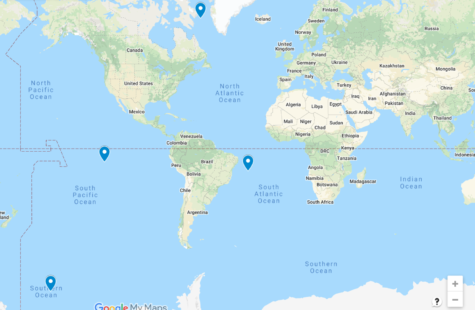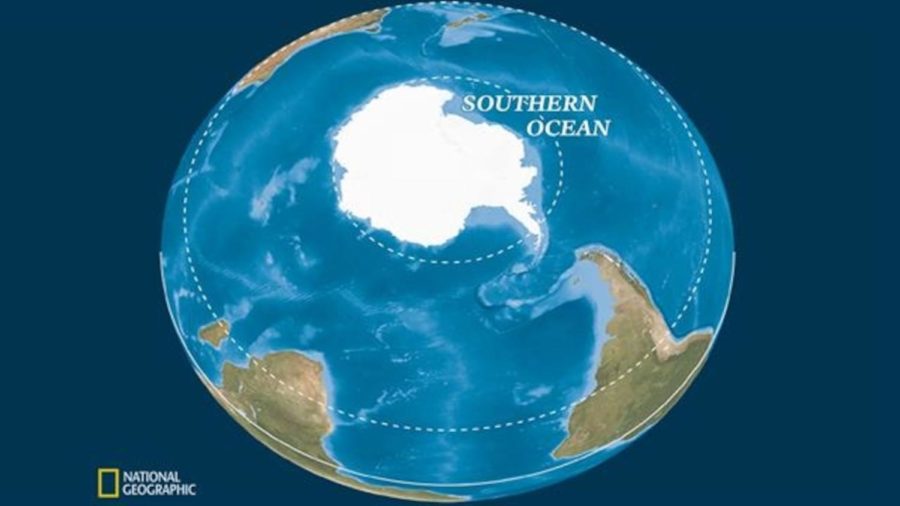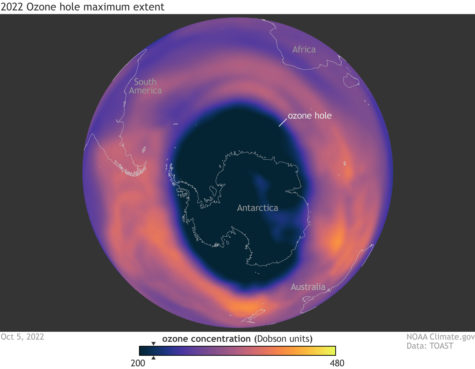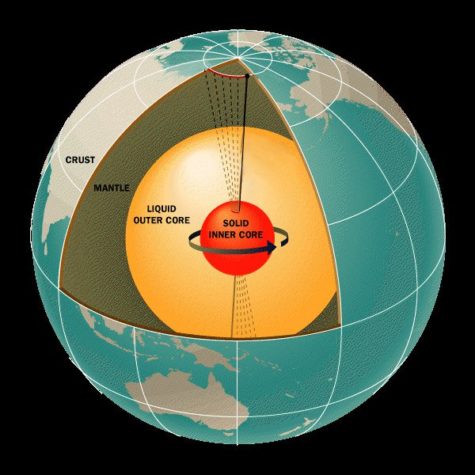Scientists announce new ocean on horizon
Photo by NationalGeographic.com
The American board of National Geographic officially recognized the Southern Ocean as the world’s fifth ocean.
November 8, 2021
Everyone has been taught the four oceans: Pacific, Atlantic, Indian, and Arctic. Now, there is a fifth one that scientists are officially announcing.
On June 8, the American board of National Geographic officially recognized the ocean that scientists have kept under wraps for years: the Southern Ocean.
The Southern Ocean in all actuality is a newly named part of the Arctic Ocean. It is the southernmost waters extending from the coast of Antarctica to the line of latitude at 60 degrees South.
According to National Geographic, the color of the glaciers deepen into an aquamarine blue, the wind and the waters have a cold crisp sensation, and the landscape of the mountains creates an eerie phenomenon when admiring the sight.

Scientists have always recognized this area as the Southern Ocean, but because it is in international waters, there was never a full agreement on the boundaries. For years, scientists and geographers compare and contrast the characteristics in order to decide if one is qualified for its own name.
Riordan’s Biology teacher Colleen O’Rourke commented on the benefits of having a new ocean area. “Currents help divide and define the oceans just like mountain ranges divide continents. Separating out the ‘Southern Ocean’ as its own unique area represents a more nuanced understanding of the ecology of the oceans.”
The Antarctic Circumpolar Current, or ACC, has been flowing from east to west in Antarctica, which now separates the northern and southern boundary on the 60 degree line of latitude. The water, according to scientists, is colder and is less salty than the rest of the oceans’ water.
Scientists have been studying this particular current for many years, for it holds a “conveyor belt” position for the rest of the ocean. This current specifically pulls the waters from the Pacific, Atlantic, and Indian ocean and transfers heat around the world. The Southern Ocean specifically appears to have major effects on regulating the climate of the entire planet, so paying more attention to its patterns and changes will be very important in predicting the effects of climate change in the future. — Colleen O'Rourke
By the cold water of the Arctic sinking to the ocean floor, it is able to trap carbon, which is a crucial part to the on-going climate change.
Recently, scientists have conducted studies showing that the water from the ACC current is getting warmer from the rapid human driven climate change. The water from the ACC that is closest to land has been melting the ice caps, but scientists are uncertain on how this is going to impact the future of Antarctica.
O’Rourke emphasized that paying close attention to this new ocean is crucial. “The Southern Ocean specifically appears to have major effects on regulating the climate of the entire planet, so paying more attention to its patterns and changes will be very important in predicting the effects of climate change in the future.”
With climate change being a timely and global issue, O’Rourke stressed that “Supporting governmental policies and making personal choices, which reduce the emissions of CO2 and other greenhouse gasses, is probably the most important action.”
The most important action humans can do right now for climate change is to learn more about improving our lifestyle. Though our lifestyle has been molded through toxic and immortal plastic with a touch of pollution, more earth friendly options are coming to be more available for everyone.
Riordan’s AP environmental science teacher Micheal O’Brien plans to teach his students about how they can conserve and protect the Southern Ocean and how it will affect the rest of the planet’s ocean ecosystem if it is ignored.
He emphasized that organizations of ocean conservation need to agree on the new ocean in order for them to properly protect it.
The Southern Ocean, by the hopes of all, will shed light on the calamity of climate change. The currents that it holds are so powerful to the ecosystem of the Arctic that it will cause catastrophic damage if not attended to. There is no Planet B.













